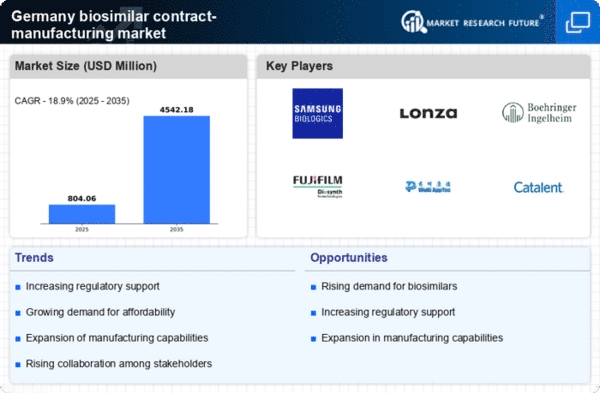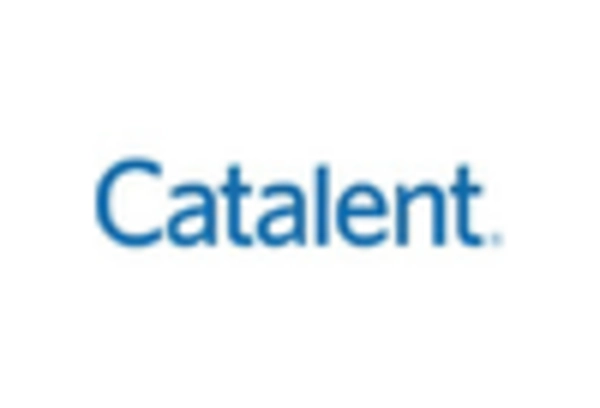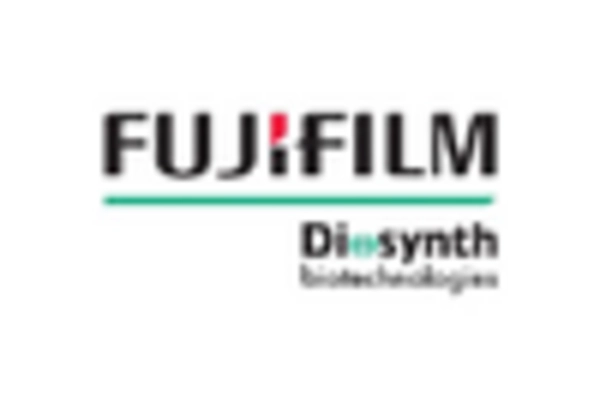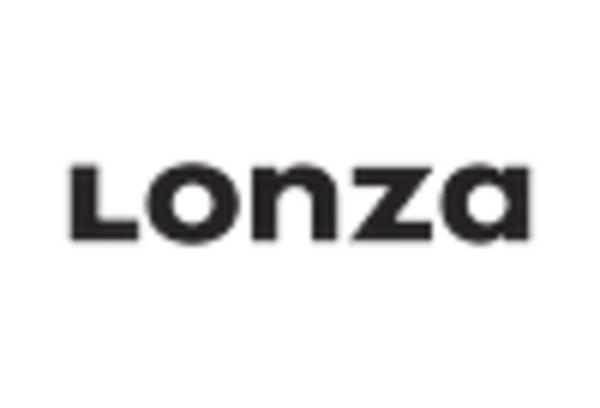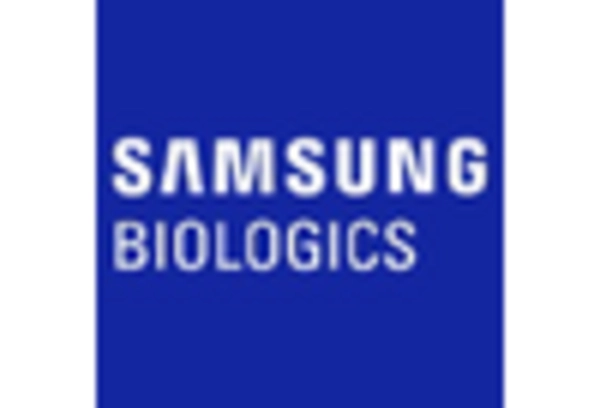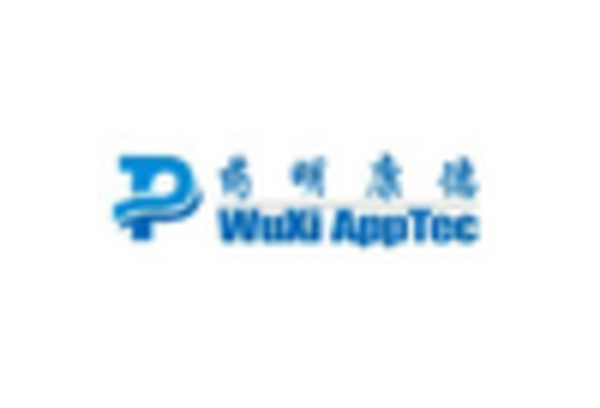Supportive Regulatory Environment
Germany's regulatory framework is evolving to support the biosimilar contract-manufacturing market. The European Medicines Agency (EMA) has established guidelines that facilitate the approval process for biosimilars, ensuring that they meet stringent safety and efficacy standards. This supportive environment encourages investment in biosimilar development and manufacturing. As of 2025, the approval rate for biosimilars in Europe has increased, with Germany leading the way in adopting these regulations. The streamlined processes not only reduce time to market but also enhance the confidence of manufacturers and investors in the biosimilar sector. This regulatory clarity is likely to attract more players into the biosimilar contract-manufacturing market, fostering competition and innovation.
Growing Focus on Personalized Medicine
The trend towards personalized medicine impacts the biosimilar contract-manufacturing market in Germany. As healthcare shifts towards tailored therapies, the demand for biosimilars that can be customized to individual patient needs is increasing. This shift is prompting contract manufacturers to develop more flexible production capabilities, allowing for smaller batch sizes and quicker turnaround times. The potential for personalized biosimilars could enhance patient outcomes and satisfaction, thereby driving market growth. Furthermore, the German healthcare system's emphasis on patient-centered care aligns with this trend, suggesting that the biosimilar contract-manufacturing market may see increased investment and innovation in this area. The ability to offer personalized solutions could differentiate manufacturers in a competitive landscape.
Rising Demand for Cost-Effective Therapies
The biosimilar contract-manufacturing market in Germany is experiencing a notable increase in demand for cost-effective therapies. As healthcare costs continue to rise, stakeholders are seeking alternatives to expensive biologics. Biosimilars offer a more affordable option, potentially reducing treatment costs by up to 30%. This shift is driven by both healthcare providers and patients who are increasingly aware of the financial implications of their treatment choices. The German healthcare system, known for its rigorous standards, is gradually embracing biosimilars, which could lead to a broader acceptance and utilization of these products. Consequently, contract manufacturers are positioned to capitalize on this trend by providing tailored solutions that meet the specific needs of biopharmaceutical companies, thereby enhancing their market presence.
Increased Investment in Biopharmaceutical R&D
Investment in biopharmaceutical research and development (R&D) is a critical driver for the biosimilar contract-manufacturing market in Germany. As companies allocate more resources towards developing new biosimilars, the demand for contract manufacturing services is likely to rise. In recent years, R&D spending in the biopharmaceutical sector has seen a steady increase, with estimates suggesting a growth rate of around 5% annually. This trend indicates a robust pipeline of biosimilars entering the market, which in turn necessitates the services of contract manufacturers to scale production. The collaboration between biopharmaceutical companies and contract manufacturers is expected to strengthen, as both parties seek to navigate the complexities of biosimilar development and commercialization, thereby enhancing the overall market landscape.
Technological Advancements in Manufacturing Processes
Technological advancements in manufacturing processes significantly influence the biosimilar contract-manufacturing market. Innovations such as continuous bioprocessing and single-use technologies are enhancing efficiency and reducing production costs. In Germany, contract manufacturers are increasingly adopting these advanced technologies, which can lead to a reduction in production time by up to 50%. This efficiency not only lowers costs but also improves the scalability of biosimilar production. As a result, manufacturers can respond more swiftly to market demands, positioning themselves favorably within the competitive landscape. The integration of these technologies is expected to drive growth in the biosimilar contract-manufacturing market, as companies seek to optimize their operations and meet the rising demand for biosimilars.


